Want to add a hotel stay or change your flights?
Just call our team of cruise specialists to help build your dream cruise holiday today!
Prices based on 2 people sharing. Cruise only price does not include flights. Fly-cruise price may vary by chosen UK airport.
(Prices correct as of today’s date, are updated daily, are subject to change and represent genuine availability at time of update).
Cruise only holidays are financially protected by ABTA. Fly cruise holidays are financially protected by Regent Seven Seas Cruises under ATOL number 10297
Please click here to check the essential travel requirements before booking this cruise.
Itinerary
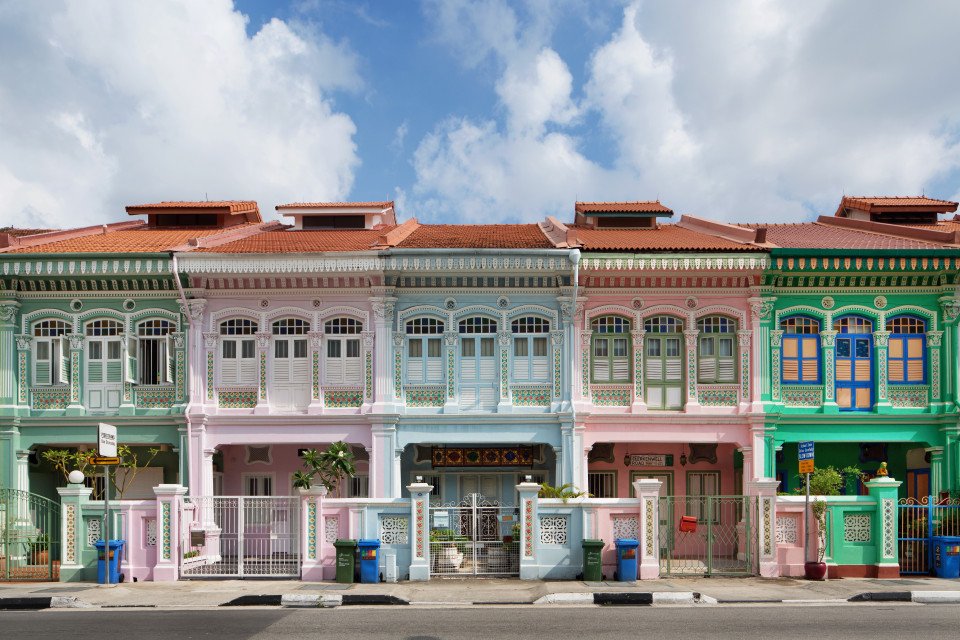
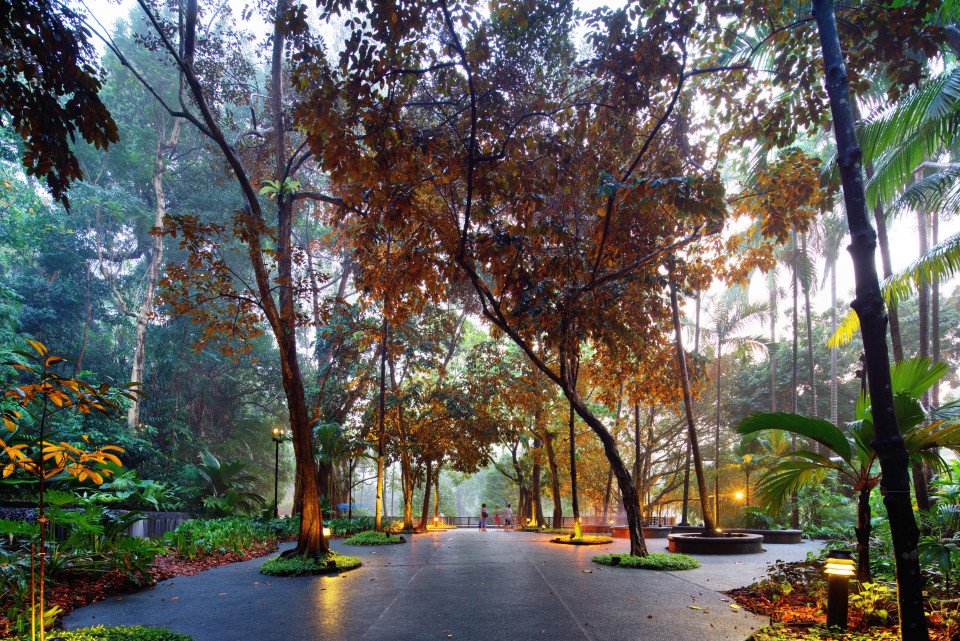
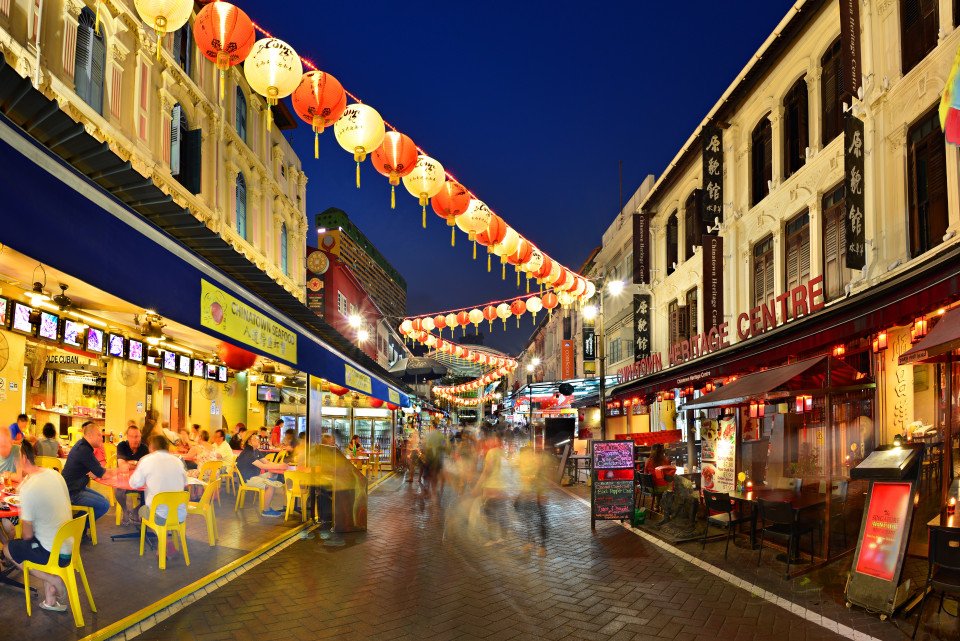
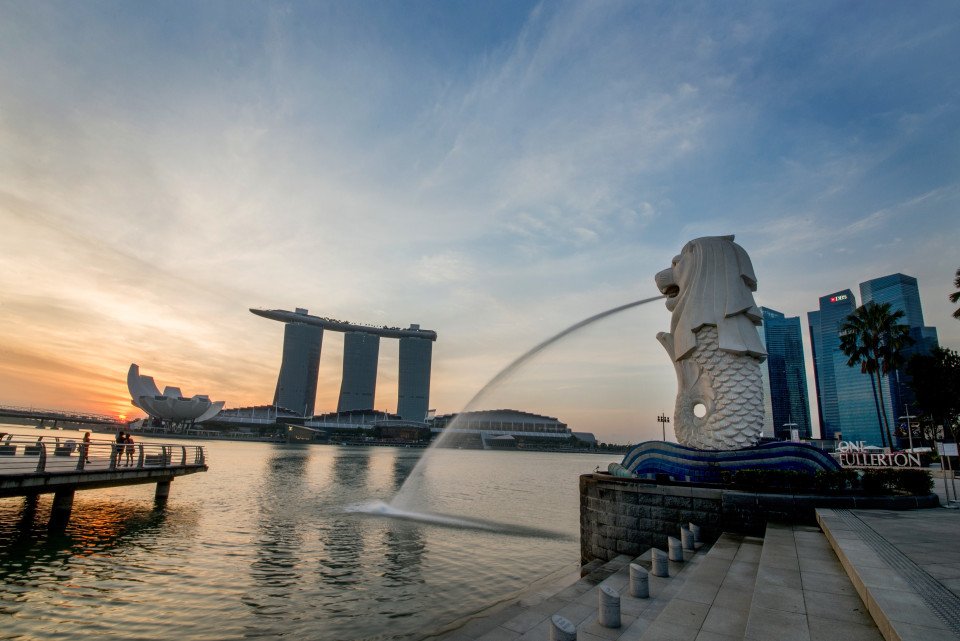
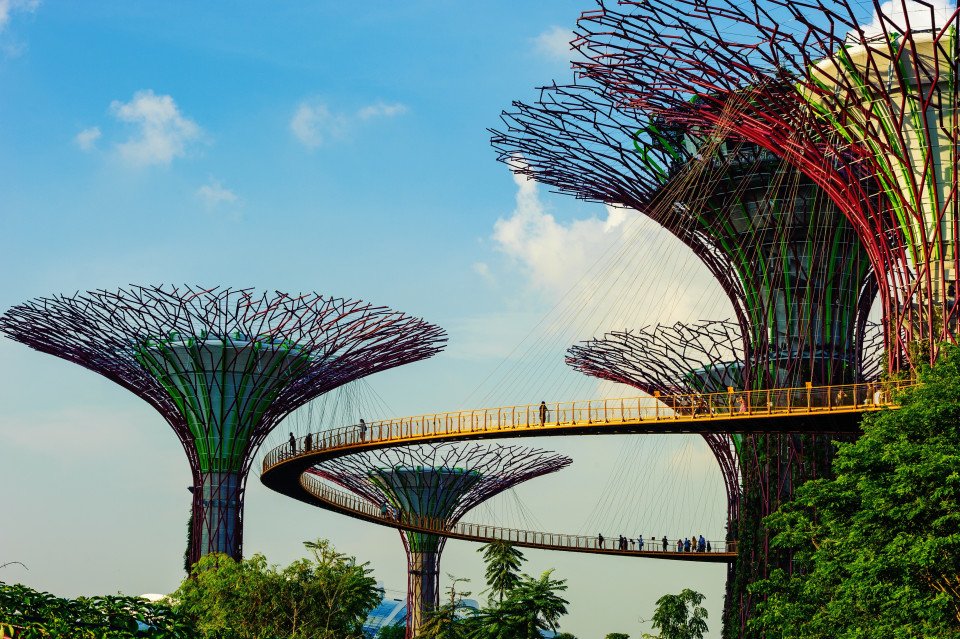
Singapore
The main island of Singapore is shaped like a flattened diamond, 42 km (26 miles) east to west and 23 km (14 miles) north to south. Near the northern peak is the causeway leading to West Malaysia—Kuala Lumpur is less than four hours away by car. It is at the southern foot where you will ... Read More
Singapore
Cruising the Gulf of Thailand
Ko Samui
Laem Chabang
Laem Chabang
Kâmpóng Saôm
Cruising the South China Sea
Ho Chi Minh City
Ho Chi Minh City
Cam Ranh
Cruising the South China Sea
Coron Island
Manila
Cruising the South China Sea
Hong Kong
What's Included with
Regent Seven Seas Cruises
A truly all-inclusive holiday with regent seven seas. With FREE unlimited shore excursions, you can taste, tour and savour every moment in over 450 ports. The cruise line offers an unrivalled ultra-luxury experience from start to finish, with everything included - from exquisitely prepared cuisine to opulent all-balcony suites.
Speak to a Luxury Cruise Concierge (Freephone) 08082026105
Entertainment throughout the day and evening
Return flights included from a choice of UK airports (fly cruise bookings only)
WiFi included on-board
Gratuities included on-board
24-hour room service
Self-service laundry
Shuttle service to and from ports and airport where available
Unlimited beverages
In-suite mini bar replenished daily
Butler service for selected suites
1:1.5 staff to guest ratio
Unlimited shore excursions
Luxurious, all-suite accommodation
Explore Seven Seas Explorer





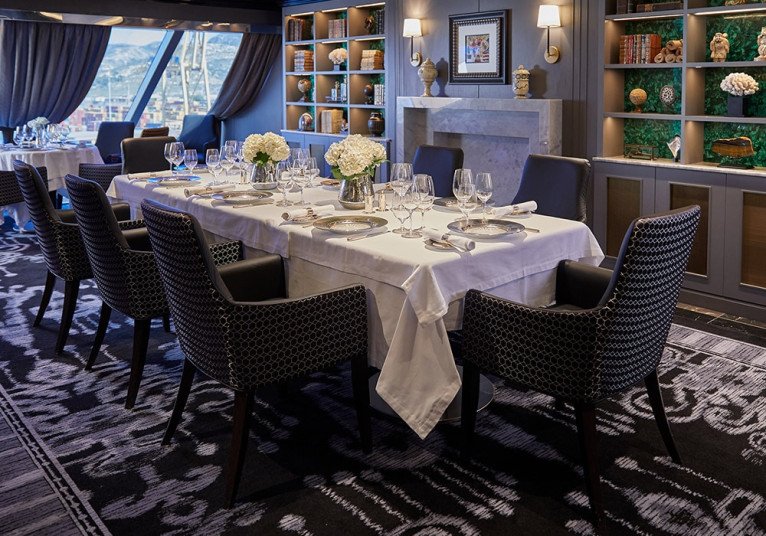
Pacific Rim
Walk past the Tibetan Prayer wheel at the Pacific Rim entrance and be prepared for an evening of culinary perfection with an array of Pan-Asian flavours and dishes. An elegantly exotic eatery.
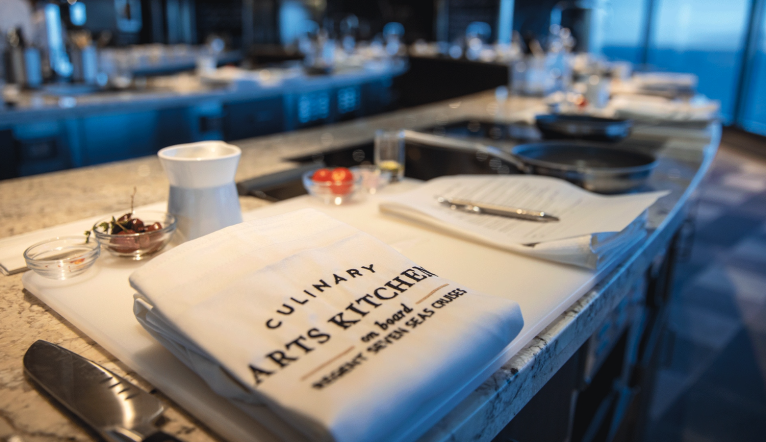
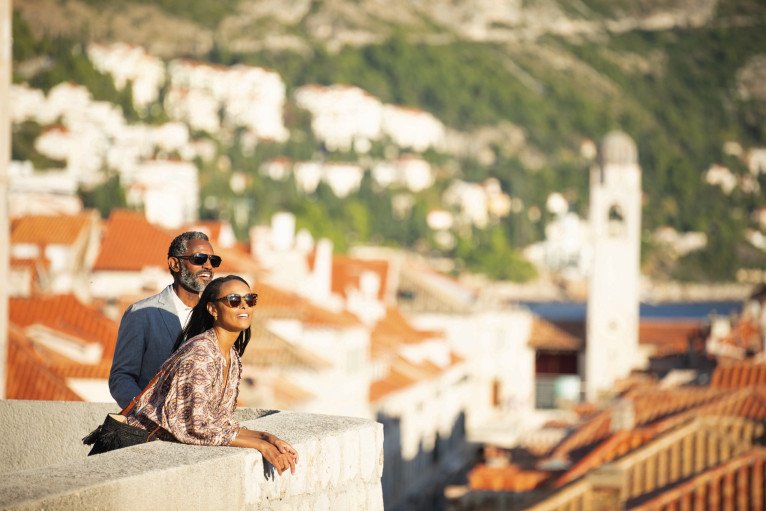
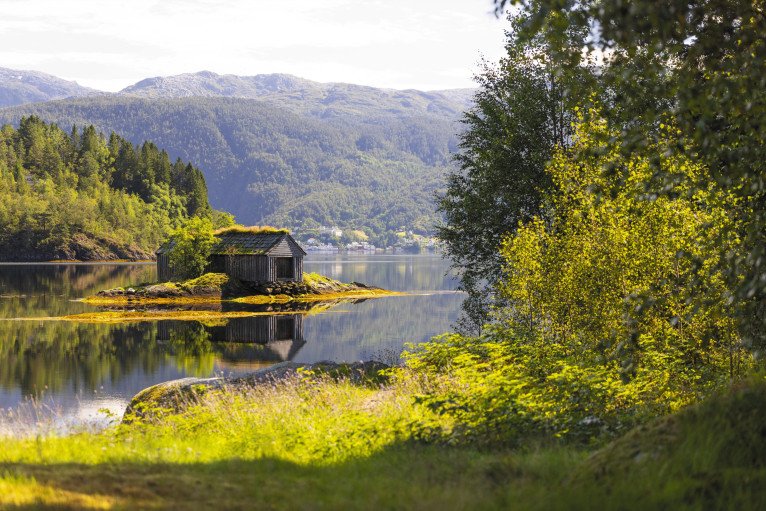
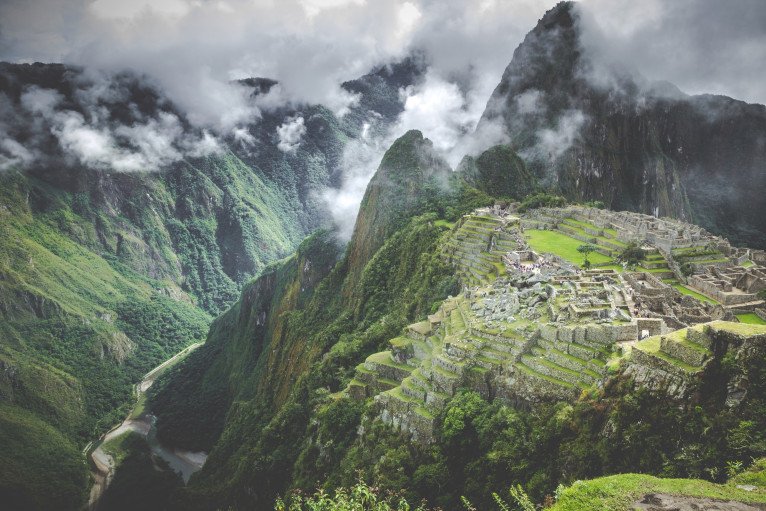
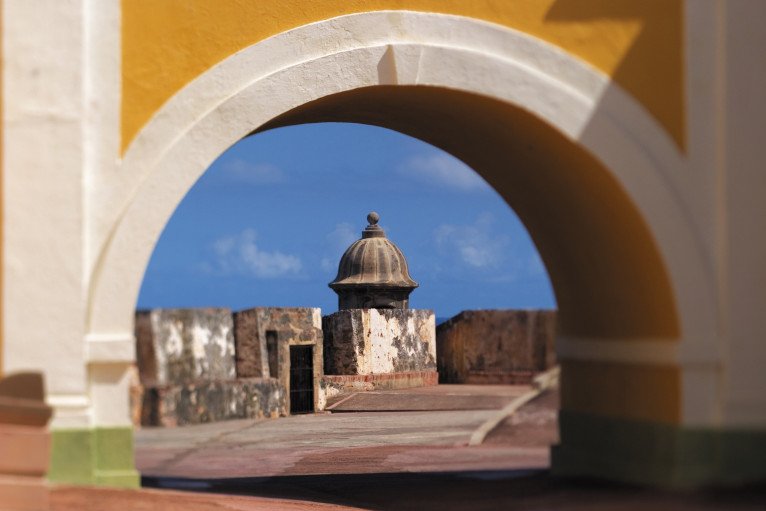
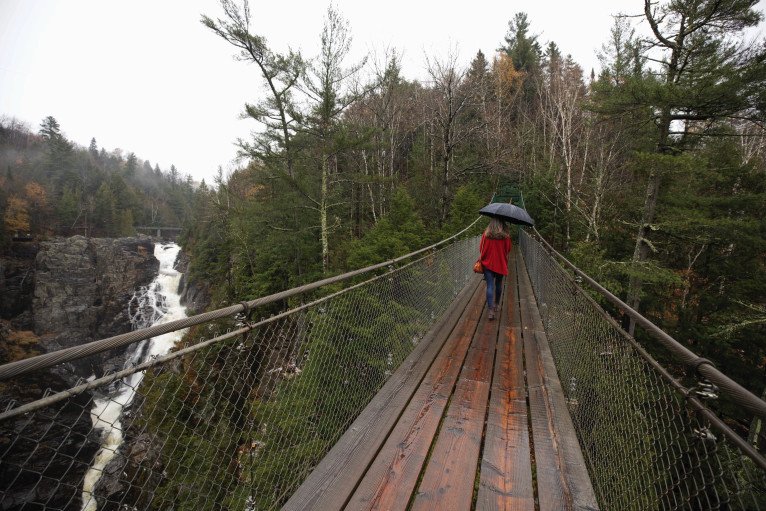
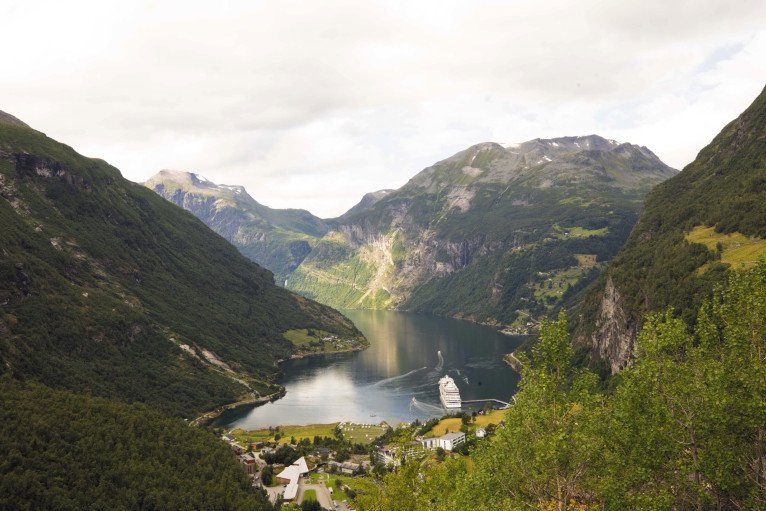

Culinary Arts Kitchen
Step into a welcoming environment, reminiscent of the world’s distinguished culinary institutions in both layout and design, with workstations fully equipped with top-of-the-line induction cooktops, stainless steel sinks and a comprehensive collection of cooking essentials. Guests attending classes in the Culinary Arts Kitchen will receive highly individualised, hands-on instruction. The curriculum will appeal to a wide range of tastes and cater to all levels of aptitude, from beginner to experienced chefs.
Taste, learn and share with the Culinary Arts Kitchen and Regent Seven Seas Cruises®.
Join expert chefs in a state-of-the-art teaching kitchen on board Seven Seas GrandeurTM, Seven Seas Splendor® or Seven Seas Explorer®. Learn to prepare authentic local recipes, and savour the flavours of the regions you are visiting.
Culinary Arts Kitchen Classes
The Culinary Arts Kitchen aboard Seven Seas Splendor and Seven Seas Explorer will provide guests with all the ingredients to expand their culinary skills in a welcoming environment reminiscent of the most prestigious cooking schools in France in both layout and design. The culinary workstations are fully equipped with top-of-the-line induction cooktops, stainless steel sinks and a comprehensive collection of cooking essentials. Guests attending classes in the Culinary Arts Kitchen will receive highly-individualised hands on instruction. The curriculum will appeal to a wide range of tastes and cater to all levels of aptitude, from beginner to experienced chef instructors. Click here for a full list of culinary classes currently available, which vary by voyage.
PLEASE NOTE: In order to ensure the adequate amount of supplies and set-up materials for each culinary class, cancellations within 36 hours prior to the day of operation of the culinary class are non-refundable. Classes may be cancelled if minimum participation levels are not met. Classes and recipes are subject to change at any time without notice.




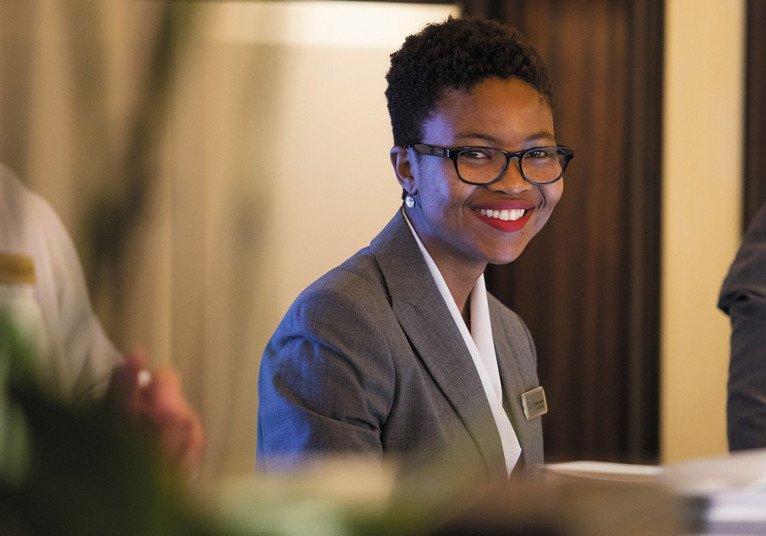



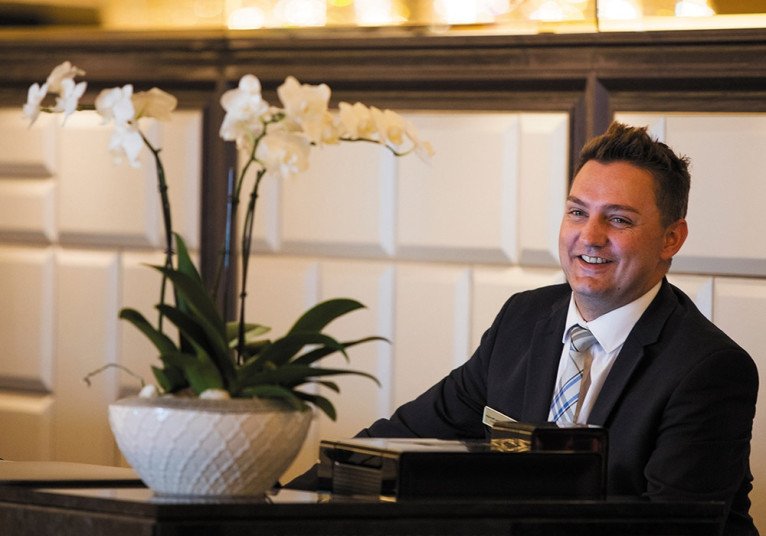

Explorer Lounge
The perfect spot to begin or end an evening, our Explorer Lounge inspires intimate conversations over perfectly mixed cocktails at an elegant, black marble bar while resident musicians play soothing live music.





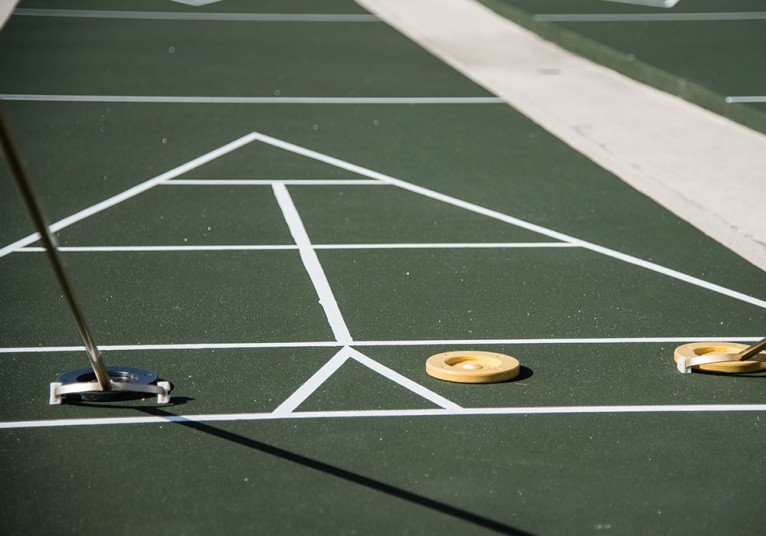
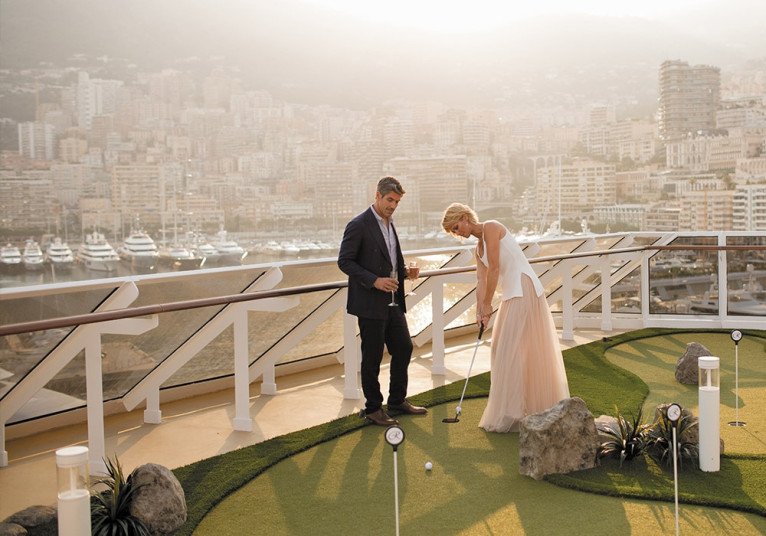
Serene Spa & Wellness™
A globally inspired, tranquil haven of health, beauty and wellness, our spa offers restorative treatments and activities that incorporate globally sourced, natural ingredients to soothe both the body and mind.
Club Mariner
Families with young travellers will enjoy our Club Mariner Youth Program on select voyages. Children ages 5 to 17 can participate in a range of specialised activities, from mini-putt tournaments to dance parties to movie nights. Each program is designed and supervised by friendly and professional youth counsellors.
Club Mariner is available on select sailings only. Please ask your travel professional for details.
Deck 14

- Regent Suite
- Penthouse Suites
- Concierge Suites
Deck 12

- Jogging Track
- Grand Suites
- Penthouse Suites
- Seven Seas Suites
- Concierge Suites
- Golf Nets
- Shuffle Board
- Bocce Court
- Paddle Tennis Court
- Putting Green
Deck 10

- Prime 7
- Chartreuse
- The Study
- Explorer Suites
- Penthouse Suites
- Seven Seas Suites
- Concierge Suites
- Superior Suites
- Seven Seas Suites
Deck 8

- Master Suites
- Penthouse Suites
- Concierge Suites
- Superior Suites
- Deluxe Veranda Suites
- Seven Seas Suites
Deck 11

- Culinary Arts Kitchen
- La Veranda
- Observation Lounge
- Pool Bar
- Pool Grill
- Sette Mari at La Veranda
- Pool Deck
- Card Room
- Connoisseur Club
- Library
Deck 9

- Master Suites
- Explorer Suites
- Penthouse Suites
- Seven Seas Suites
- Concierge Suites
- Superior Suites
- Deluxe Veranda Suites
- Seven Seas Suites
Deck 7

- Grand Suites
- Penthouse Suites
- Concierge Suites
- Superior Suites
- Deluxe Veranda Suites
- Veranda Suites
- Seven Seas Suites
Deck 6

- Fitness Centre
- Penthouse Suites
- Concierge Suitess
- Deluxe Veranda Suites
- Veranda Suites
Deck 5

- Atrium
- Business Center
- Coffee Connection
- Constellation Theater
- Infinity Pool
- Destination Services
- General Manager
- Reception & Concierge
- Meridian Lounge
- Pacific Rim
- Serena Spa & Wellness
Deck 4

- Atrium
- Compass Rose
- Constellation Theater
- Explorer Lounge
- The Casino
- Boutique
Seven Seas Explorer Cabins & Suites










Regent Suite
Meet Our Luxury Cruise Concierge
Our luxury cruise concierge have been on board a vast array of the finest ships at sea and are always happy to share their first-hand experiences to help curate your dream ultra-luxury voyage. From advising you on the best cruise lines and ships to helping you select from a variety of phenomenal destinations and itineraries, your dedicated concierge is on hand to ensure booking your next cruise is as seamless, smooth and tailored to you as possible.

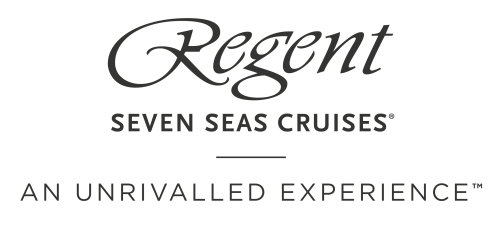
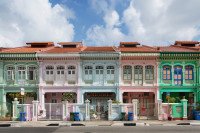
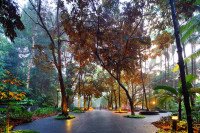
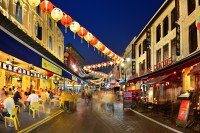
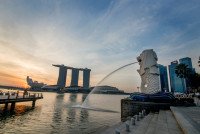
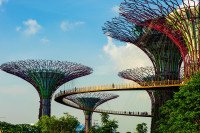
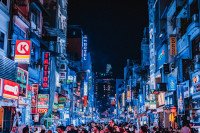
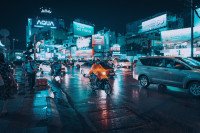
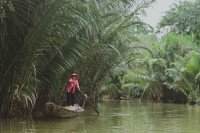
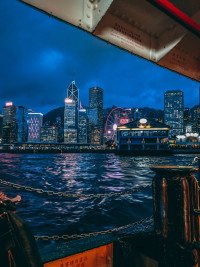
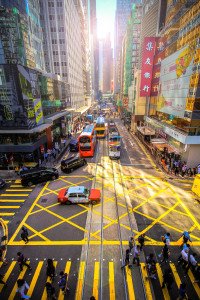
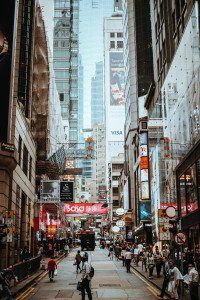
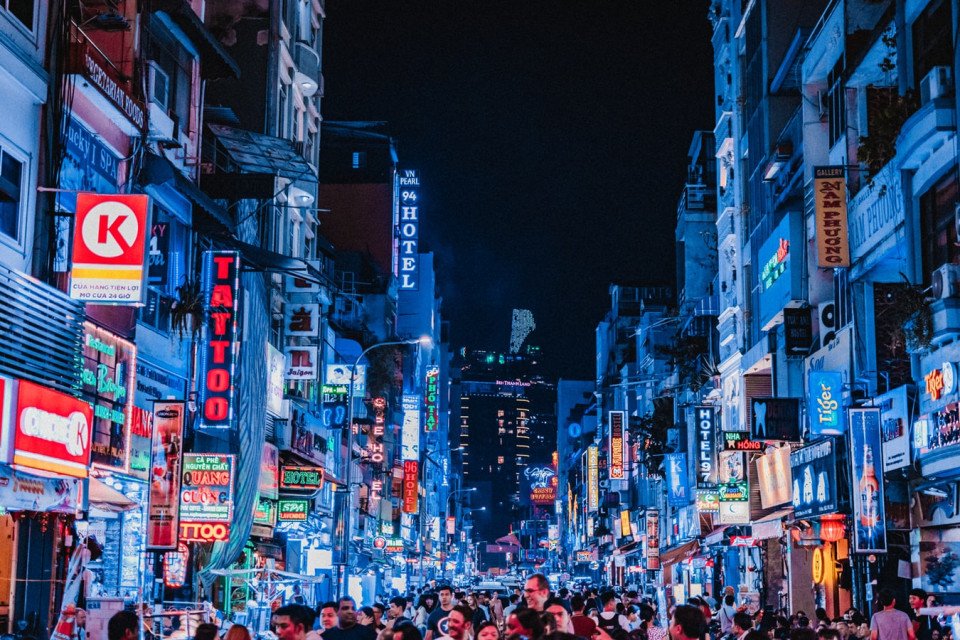
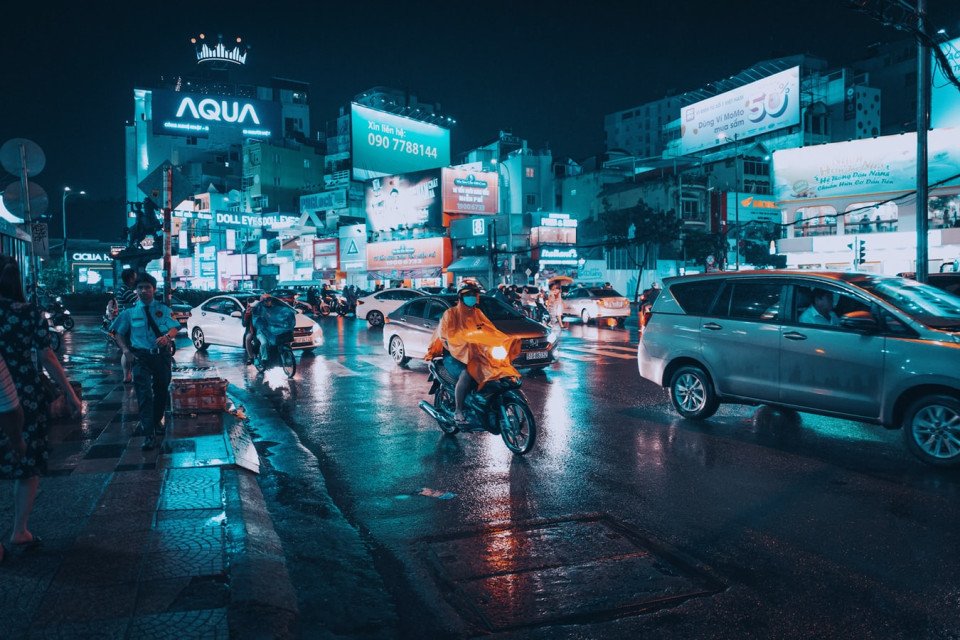
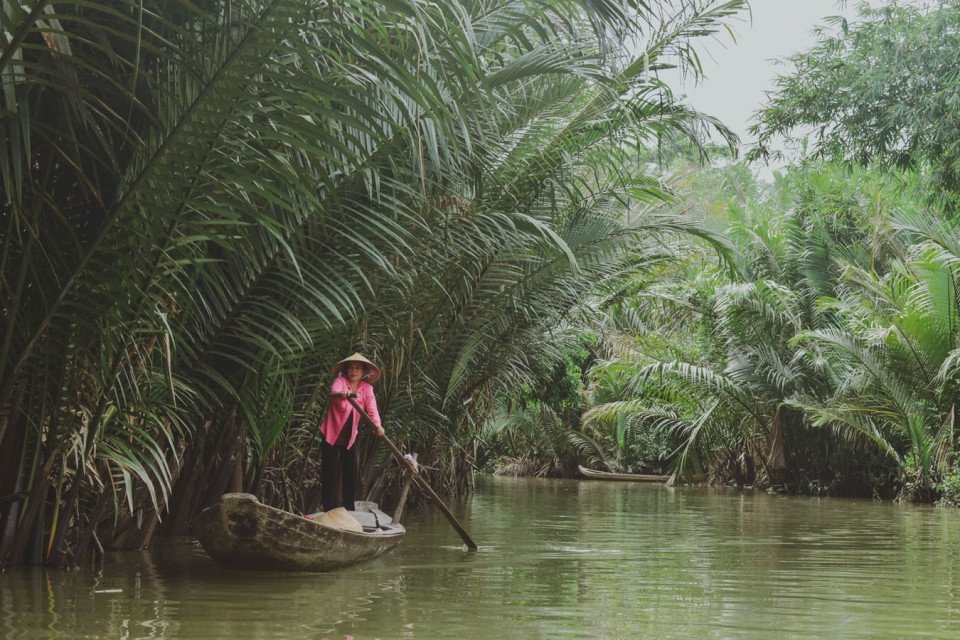
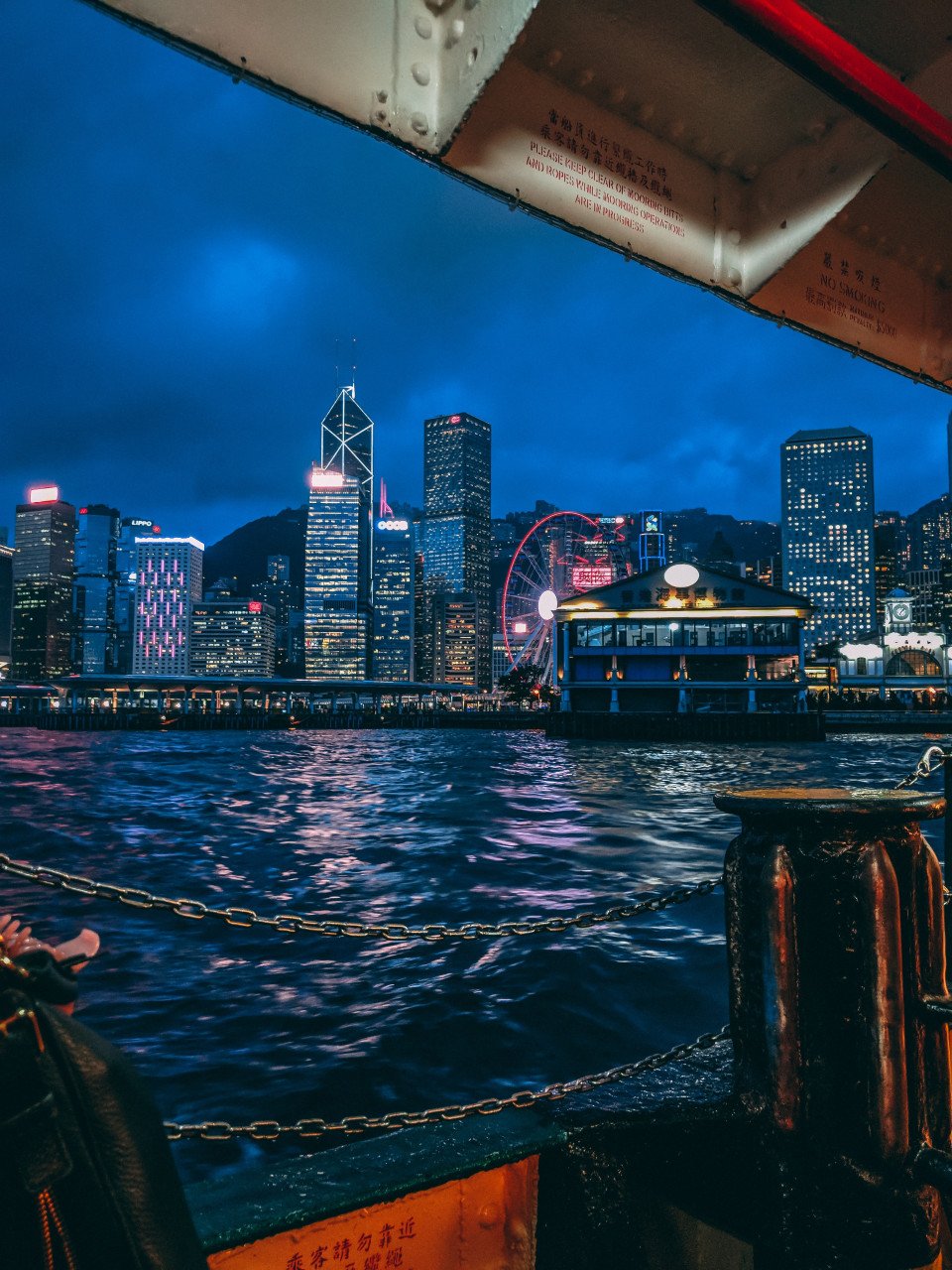
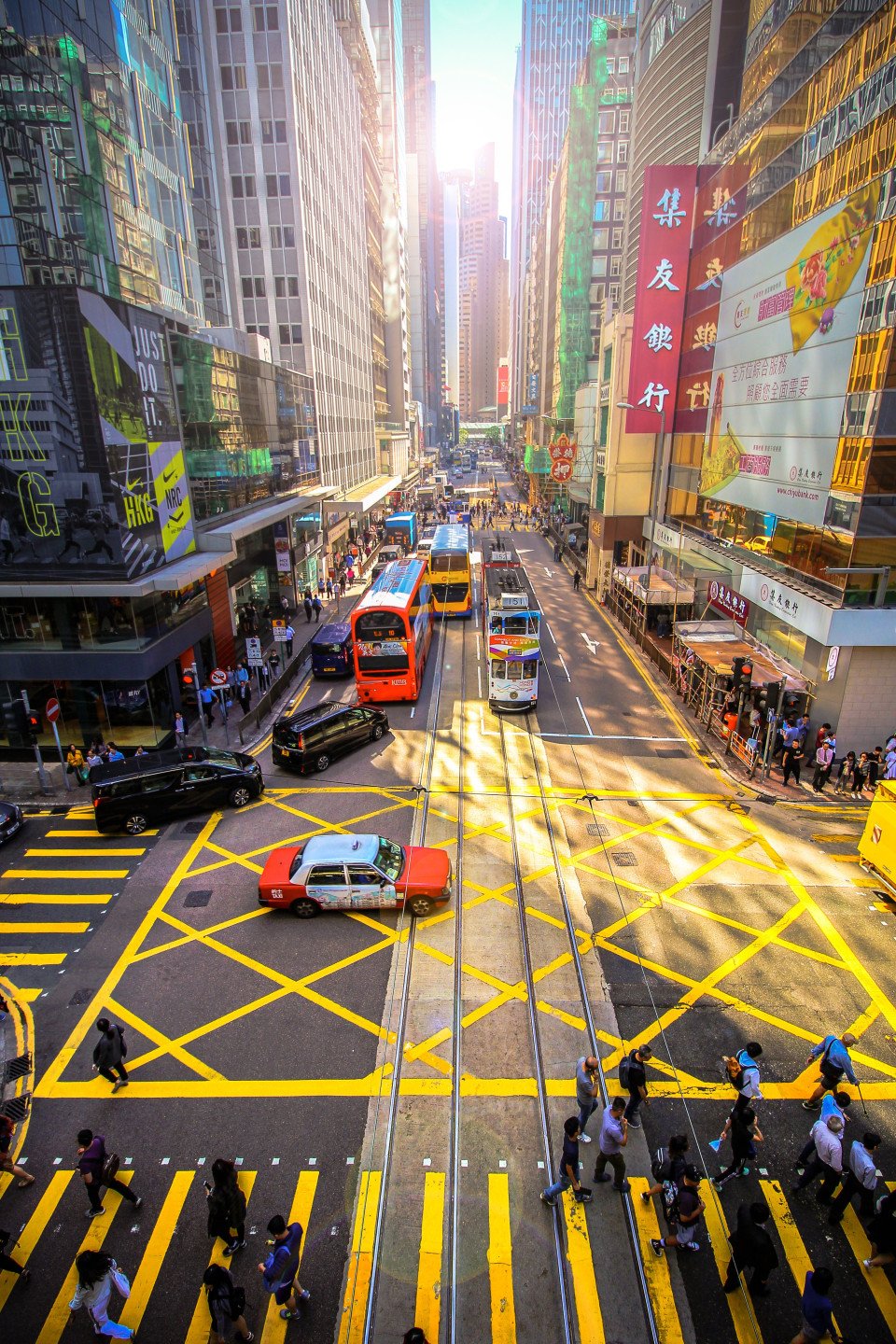
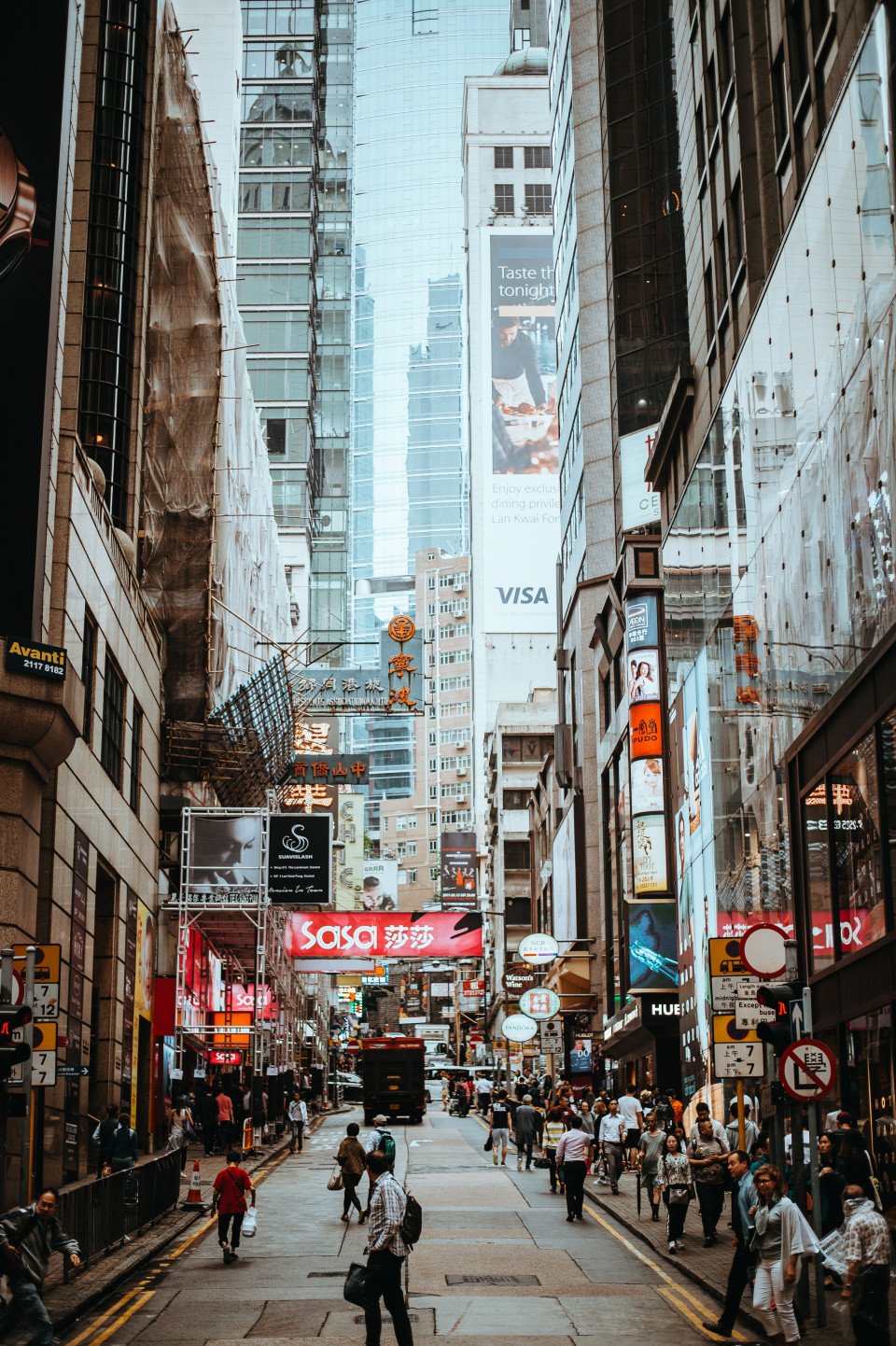
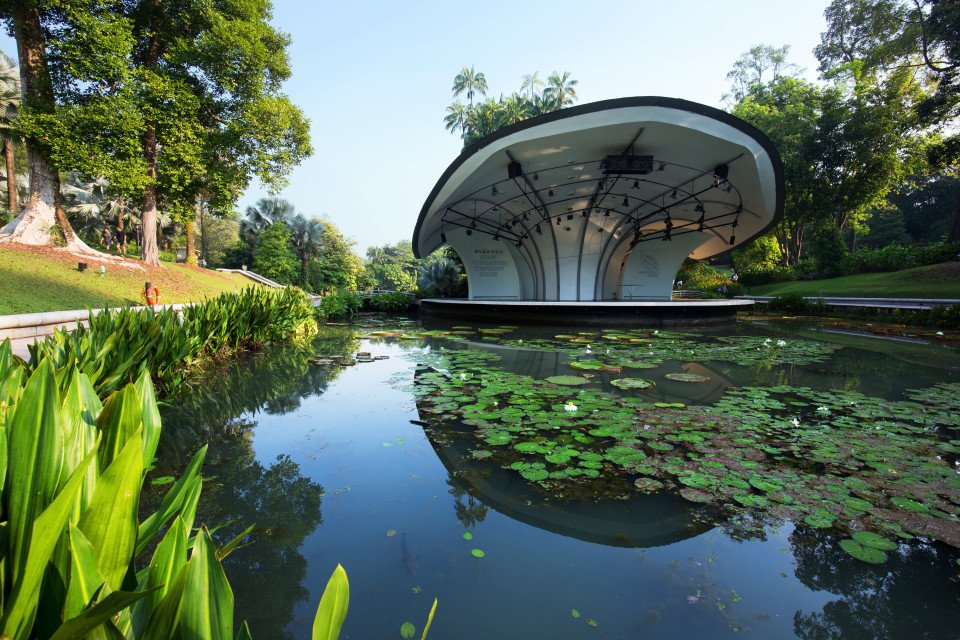





























-large_thumb.jpg)





-large_thumb.jpg)